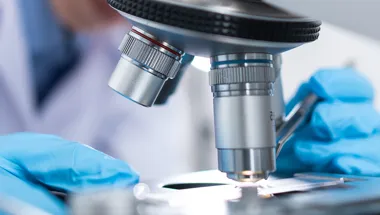
Professor Gavin Bewick
Professor in Endocrinology and Metabolism
- Theme lead for Diabetes and Obesity
- Co-Director for Diabetes Endocrinology and Obesity Clinical Academic Partnership – Kings Health Partners
Research interests
- Diabetes
Biography
Dr Gavin Bewick's research interests are focused in the field of Obesity and Diabetes. He has a well-established reputation, built over the last 20 years, in studying the regulation of metabolism with a particular interest in gut hormones. His research has made important contributions to our understanding of the neuroendocrine and enteroendocrine control of appetite and body weight regulation. A key current interest of the Bewick lab is the role of the gut epithelium in the control of metabolism and the pathophysiology of diabetes and obesity. The lab is exploring the roles of diet, the microbiome and immune signaling in shaping the gut epithelium in health and disease. To do this the Bewick lab uses both pre-clinical and translational approaches encompassing methods ranging from organoid culture to single-cell transcriptomics to physiological studies.
Research

Gut & Metabolic Health
Our group explores the role of the gut in health and disease.

Islet Biology Research Group
Our group studies the fundamental science of islets of Langerhans, from the molecular biology of beta-cells to their effects on whole body physiology. We research the mechanisms of islet dysfunction during type 2 diabetes and gestational diabetes, identify novel therapeutic targets, and work to improve islet transplantation therapy for type 1 diabetes.

Organoids Research Interest Group (ORIG)
Organoids are 3D, miniature versions of organs grown from stem cells. They replicate organ structure and function, making them essential for studying tissue homeostasis, disease mechanisms, and developing new therapies. This research interest group encompasses all organoid-related research at King’s College London.
Research

Gut & Metabolic Health
Our group explores the role of the gut in health and disease.

Islet Biology Research Group
Our group studies the fundamental science of islets of Langerhans, from the molecular biology of beta-cells to their effects on whole body physiology. We research the mechanisms of islet dysfunction during type 2 diabetes and gestational diabetes, identify novel therapeutic targets, and work to improve islet transplantation therapy for type 1 diabetes.

Organoids Research Interest Group (ORIG)
Organoids are 3D, miniature versions of organs grown from stem cells. They replicate organ structure and function, making them essential for studying tissue homeostasis, disease mechanisms, and developing new therapies. This research interest group encompasses all organoid-related research at King’s College London.
